
Producing over 40% of teachers in South Africa
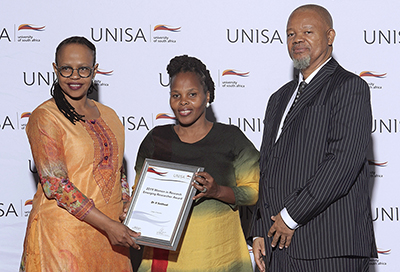
Prof Thenjiwe Meyiwa (Vice-Principal: Research, Postgraduate Studies, Innovation and Commercialisation) and Prof Mandla Makhanya (Principal and Vice-Chancellor) congratulate Dr Itumeleng Setlhodi (College of Education) (centre) on her 2019 Women in Research Emerging Researcher Award.
Unisa fêted Dr Itumeleng Setlhodi with an Emerging Researcher Award in the Women in Research category at the 2020 Research & Innovation Awards. Excited about the prize, Setlhodi says, "It is an assurance that the work I am doing, the support I get and the time invested are all worth it."
Based in the College of Education (CEDU), Setlhodi is the Head of Quality Assurance and Enhancement. She holds both Bachelor of Arts (BA) and Bachelor of Education (BEd honours) degrees from North-West University, a Master of Education (MEd) degree from the University of Johannesburg and a Doctor of Education (DEd) from Unisa. She encourages that research in education should be informed by real issues focusing on African ways to address South African problems.
Hoping to deliver impactful research to transform education, Setlhodi says, "I wish my research to resolve pertinent issues and suggest practical solutions to complex problems." She works tirelessly to ensure that her contributions form part of a collective knowledge adding to the results that will bring about change. In addition to publishing articles, Setlhodi also presents at local and international conferences. Her research focus is on leadership, management and policy.
Sharing her research outputs, Setlhodi highlights two articles and book chapters among many others. The first one she mentions is titled Ubuntu leadership: An African panacea for improving school performance (2019). "The article argues that ubuntu-inspired leadership instils values that brings collaboration, social cohesion and letsema-inspired practices to yield desired performance in schools as an enabler to improve education." She explains that this was influenced by the need to focus on indigenous practices to come up with solutions that can work in African contexts.
The second article listed by Setlhodi, entitled A case of sexist descending attitudes towards a woman leader in a school and its effects on practices (2018), was influenced by issues that emanated from the media on the undermining and attack on female principals in the Eastern Cape and Gauteng provinces. She decided to embark on this research for her MEd dissertation to explore the change agency of female principals of high schools. "The research sought to establish existing perceptions about female principals in schools and their sources, hence the topic, which expands on one of the issues that emanated from the exploration," she notes.
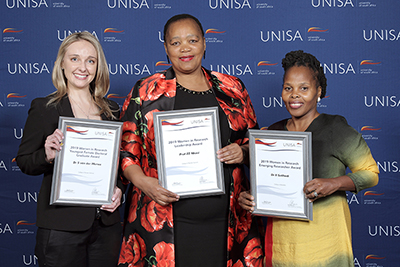
2019 Women in Research Awards: Dr Sintechè van der Merwe (College of Human Sciences) (Youngest Female Doctoral Graduate), Prof Zethu Nkosi (College of Human Sciences) (Leadership) and Dr Itumeleng Setlhodi (College of Education) (Emerging Researcher)
Equally, Setlhodi mentions two book chapters that earned a Scopus status in 2019. The first, entitled Teacher liaison in-service training through mentorship (2018), argues that making provision for both formal and informal mentoring for teachers may guide and nurture learner leaders in schools. Setlhodi believes that "we need inspired courageous acts contributing towards a sound school social order to ensure safety in schools".
The second chapter, entitled The value of pacing in promoting self-directed learning, (2019) submits that students in open, distance and e-learning (ODeL) settings need to pace themselves when directing their own learning by assuming leadership of their personal development to determine the speed at which they learn, to achieve desirable outcomes.
In conclusion, Setlhodi expresses her gratitude. "I am grateful for the professional guidance and opportunities afforded to me and the writing retreats organised by my college." Also, she says: "I thank all professors who participated in those sessions. Their work influenced my research output positively. It helped a great deal in me forging ahead with my research."
* By Lesego Ravhudzulo, Journalist, Department of Institutional Advancement
Publish date: 2020-03-26 00:00:00.0
 National leader in mathematics education aims to improve outcomes
National leader in mathematics education aims to improve outcomes
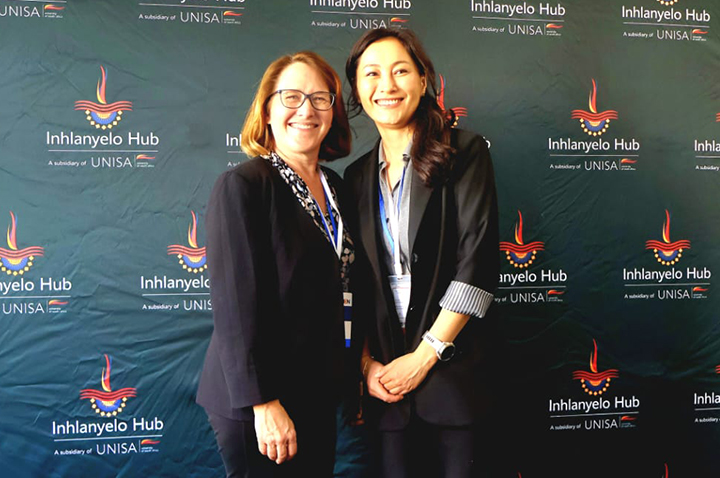 Unisa roundtable focuses on empowering SA women to lead in innovation
Unisa roundtable focuses on empowering SA women to lead in innovation
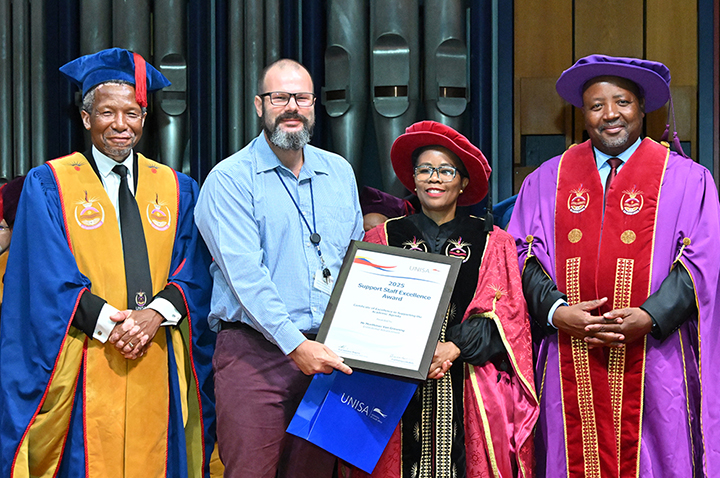 Unisan recognised for web excellence
Unisan recognised for web excellence
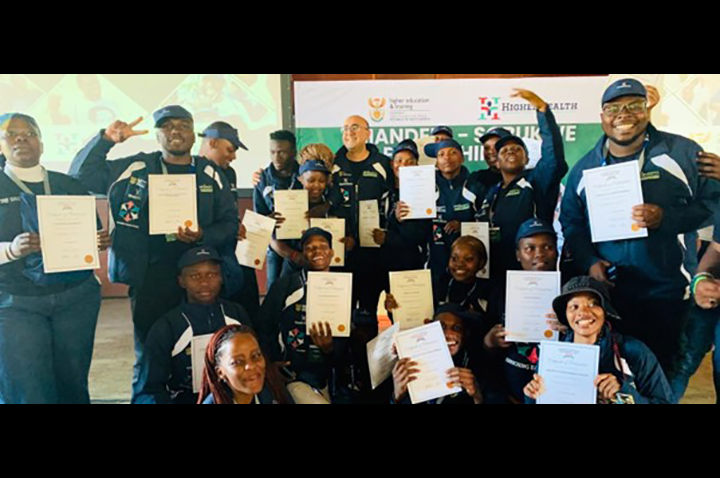 Office of the Dean of Students participates in leadership camp
Office of the Dean of Students participates in leadership camp
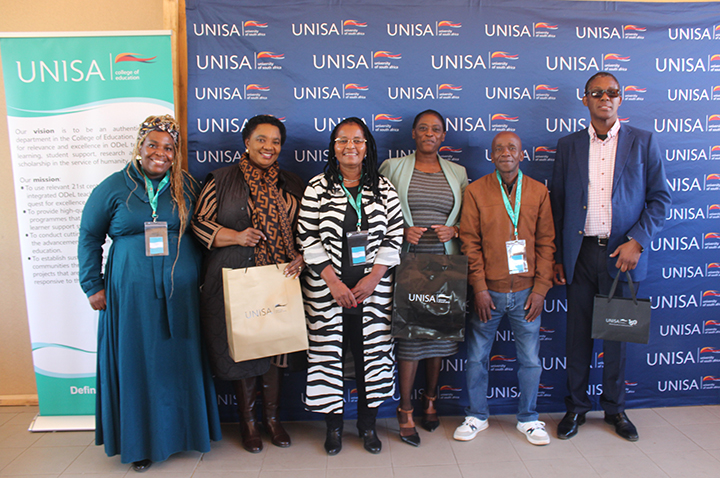 Unisa project fosters digital and pedagogical innovation in Limpopo schools
Unisa project fosters digital and pedagogical innovation in Limpopo schools